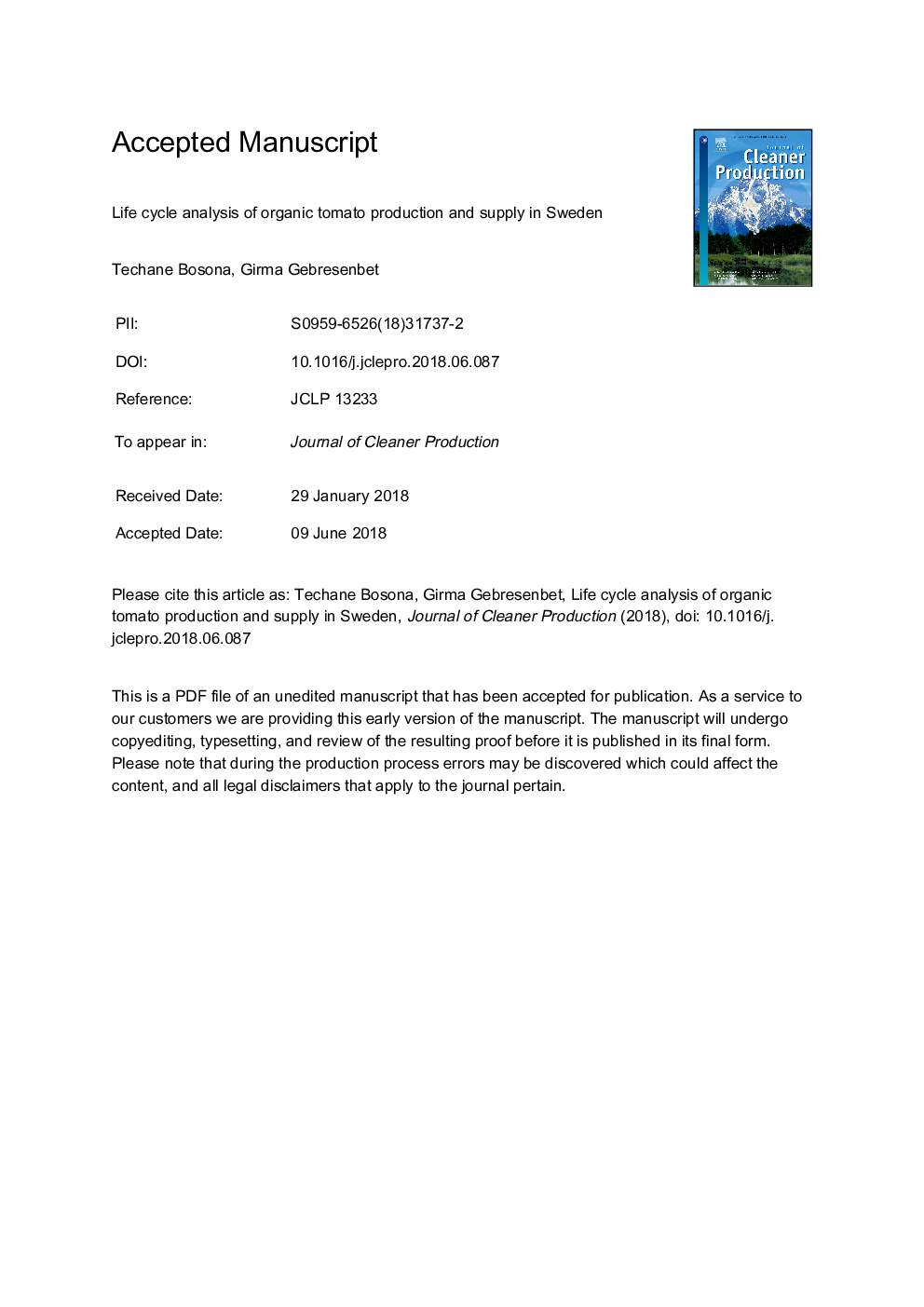| کد مقاله | کد نشریه | سال انتشار | مقاله انگلیسی | نسخه تمام متن |
|---|---|---|---|---|
| 8093901 | 1522057 | 2018 | 22 صفحه PDF | دانلود رایگان |
عنوان انگلیسی مقاله ISI
Life cycle analysis of organic tomato production and supply in Sweden
ترجمه فارسی عنوان
تجزیه و تحلیل چرخه عمر تولید و عرضه گوجه فرنگی آلی در سوئد
دانلود مقاله + سفارش ترجمه
دانلود مقاله ISI انگلیسی
رایگان برای ایرانیان
کلمات کلیدی
تجزیه و تحلیل چرخه زندگی، زنجیره ارزش گوجه فرنگی ارگانیک، خشک کردن گوجه فرنگی، سوئد،
موضوعات مرتبط
مهندسی و علوم پایه
مهندسی انرژی
انرژی های تجدید پذیر، توسعه پایدار و محیط زیست
چکیده انگلیسی
Improving sustainability of organic tomato value chains requires increase of production and reduction of losses and related environmental burden. This paper presents the study conducted on organic tomato produced and consumed in Sweden. Using life cycle analysis (LCA) method with SimaPro8.2 LCA software, the cumulative energy demand (CED) and global warming potential (GWP100) were investigated within the system boundary of cradle-to-consumer gate. The system was modeled as fresh tomato value chain (FTVC) and dried tomato value chain (DTVC). The functional unit (FU) was 1 ton of fresh product at farm that will be delivered to customer either as fresh or dried tomato. Sensitivity analysis was done considering changes in drying energy consumption. The results indicated that calculated CED values were 44.58â¯GJ and 49.40â¯GJ per functional unit for FTVC and DTVC respectively. Similarly, GWP100 values were 547.13â¯kg CO2 eq and 467.44â¯kg CO2 eq for FTVC and DTVC respectively. Agricultural production has been identified as hot-spot stage in both FTVC and DTVC cases. Next to agricultural stage, post-harvest and transport stages have been hot-spot stages for energy demand and climate impact respectively. Energy for greenhouse heating and irrigation as well as material for greenhouse construction contributed to the high impact of tomato cultivation stage. Packaging and drying activities at post-harvest stage and fuel consumption at transport stage contributed more to environmental burden. The drying process increased the energy demand while it reduced climate change impact. The drying process also could reduce the product losses and increase the product shelf life. This could improve the sustainability of locally produced organic tomato value chains, especially if integrated with renewable energy sources.
ناشر
Database: Elsevier - ScienceDirect (ساینس دایرکت)
Journal: Journal of Cleaner Production - Volume 196, 20 September 2018, Pages 635-643
Journal: Journal of Cleaner Production - Volume 196, 20 September 2018, Pages 635-643
نویسندگان
Techane Bosona, Girma Gebresenbet,
